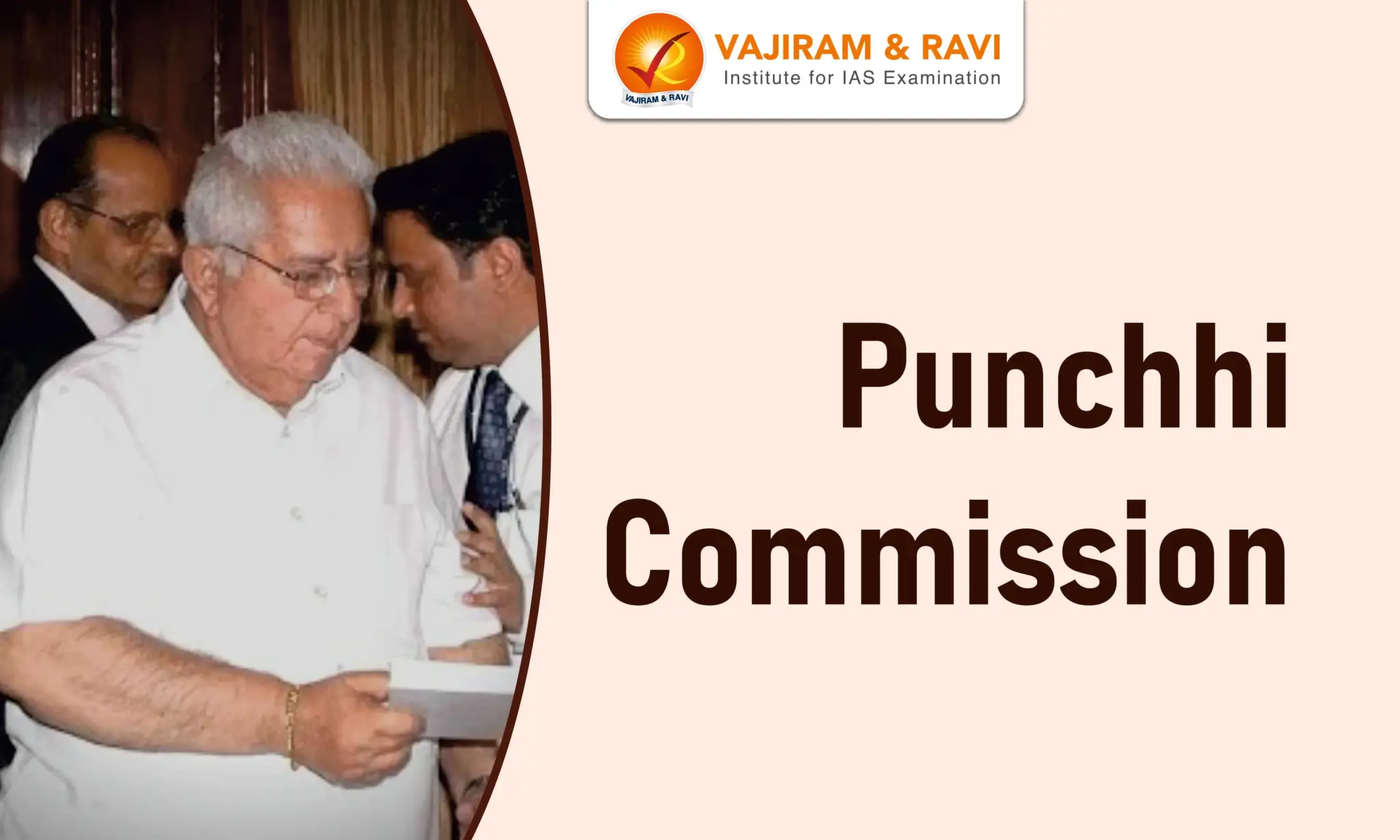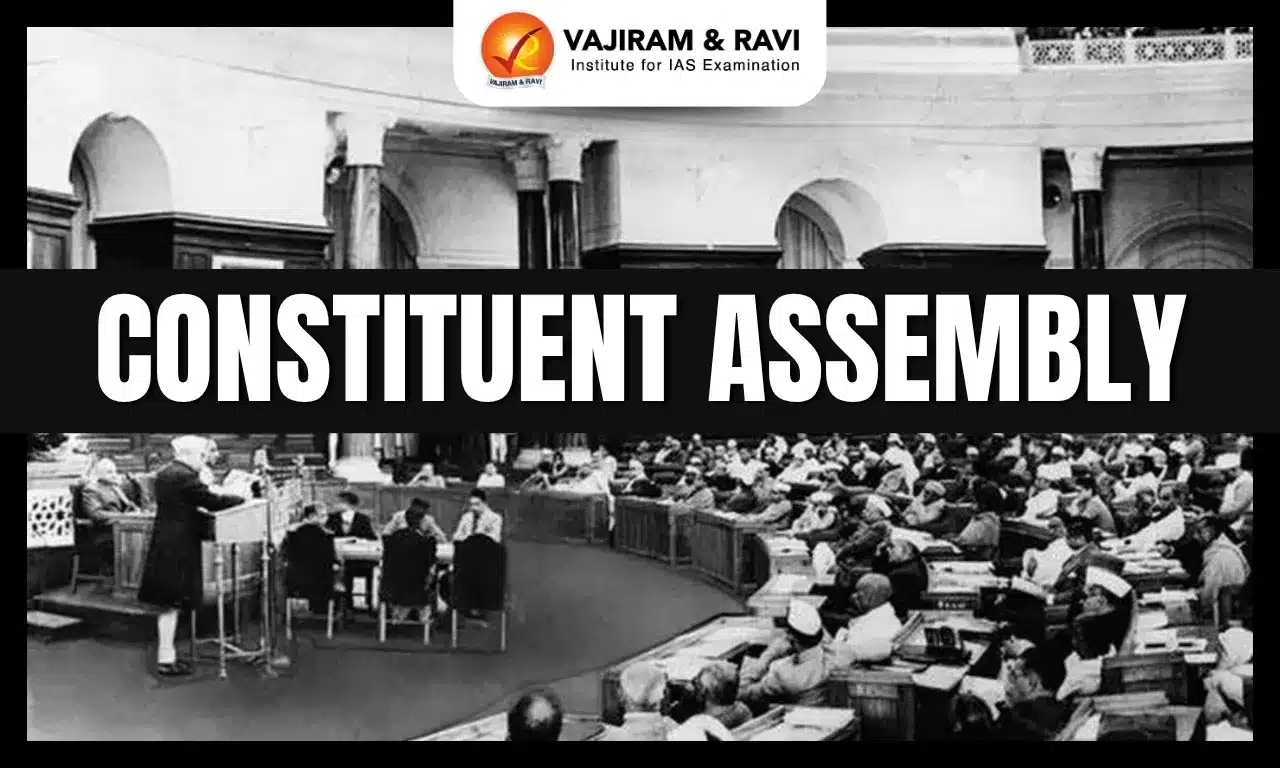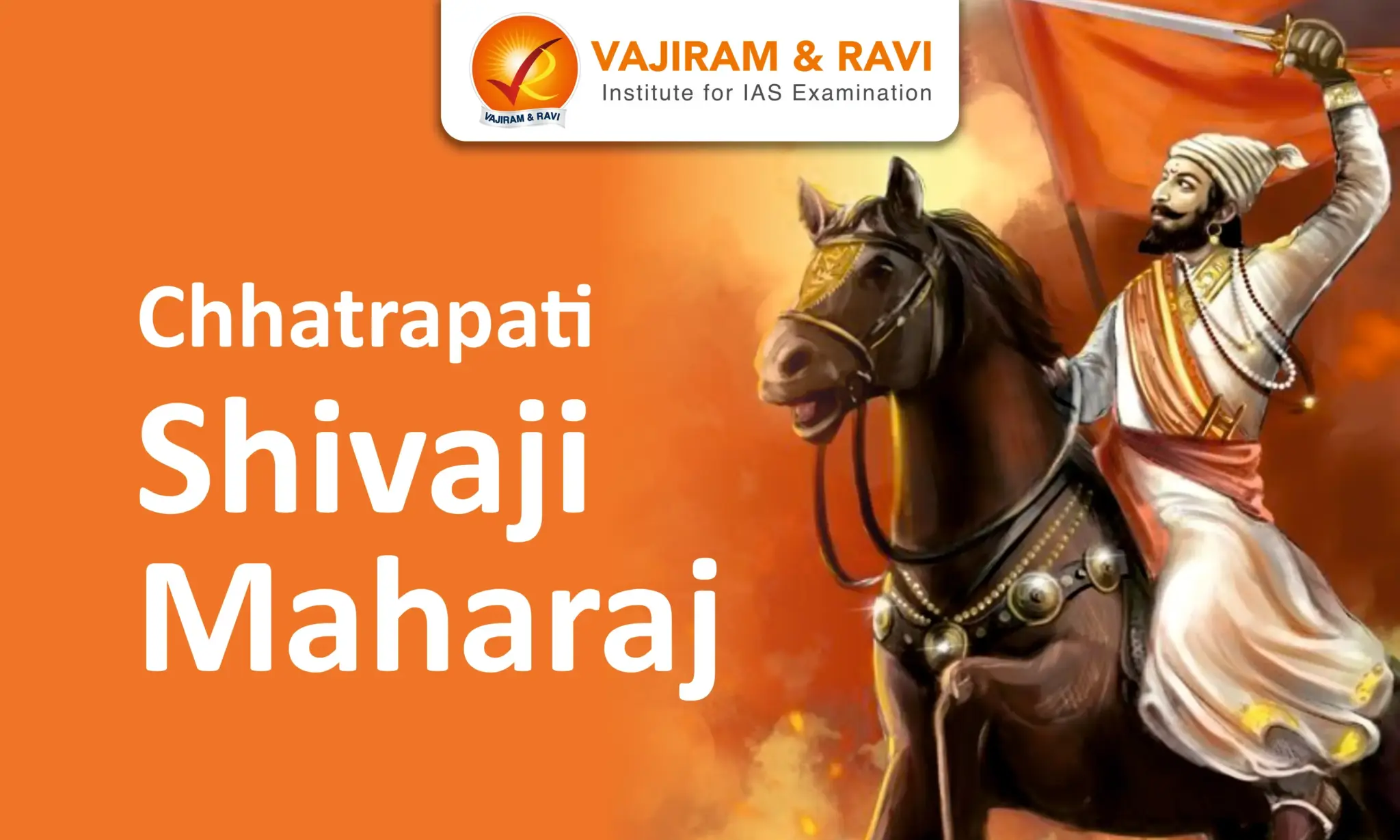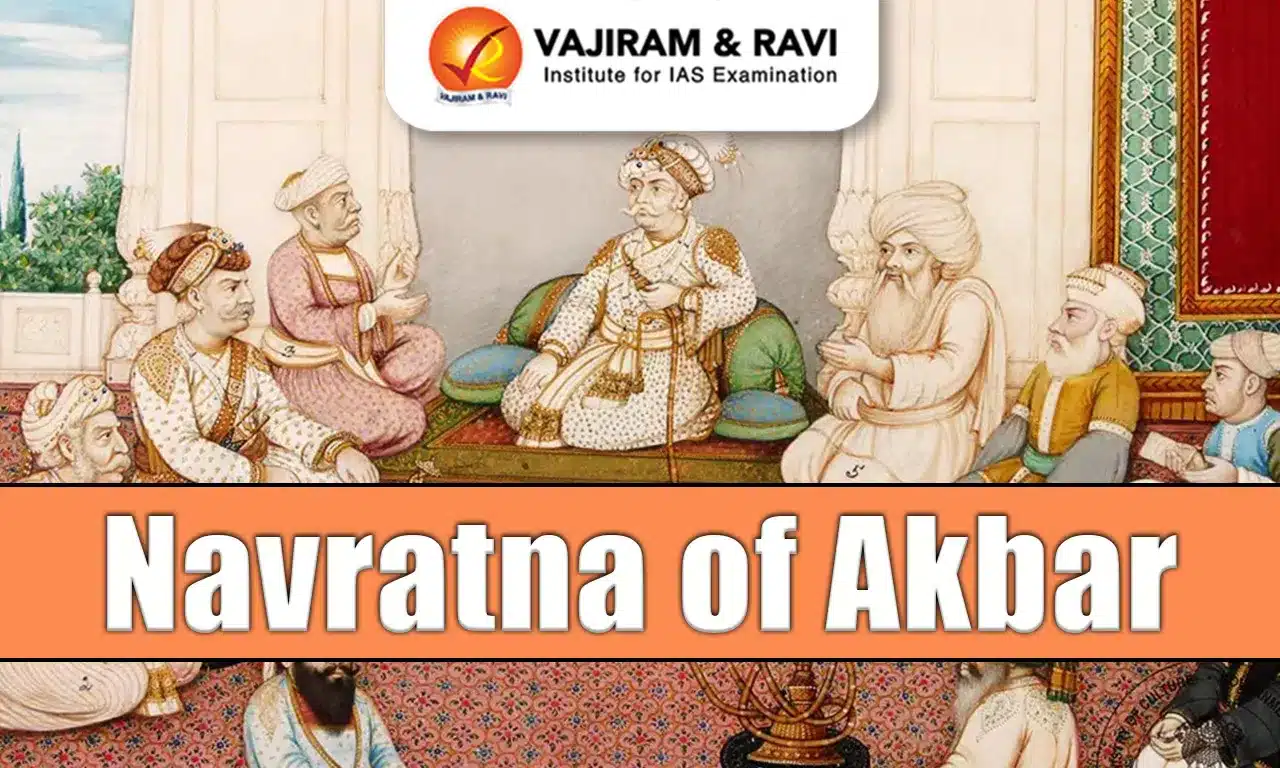The Punchhi Commission on Centre-State Relations was established by the Government of India in April 2007. It was chaired by Madan Mohan Punchhi, the former Chief Justice of India. Punchhi Commission was tasked with re-examining Centre-State relations, especially considering the significant transformations in India’s political and economic landscape since the Sarkaria Commissionhad last reviewed these relations in 1988.
After a thorough investigation, the Punchhi Commission submitted its final report on March 30, 2010. Among the Punchhi Commission’s noteworthy suggestions was the practice of appointing governors from outside the state, which sought to ensure a more impartial and balanced governance approach.
Punchhi Commission Objectives
The Punchhi Commission was the second commission set up to review the functioning of the arrangements between the Center and States. It aimed to assess the Centre’s roles and responsibilities in managing large-scale caste-based violence, communal tensions, and social conflicts.
- It also reviewed Centre-State relations, including taxation and river linking, and addressed the need for a Central law enforcement agency to initiate suo motu investigations into crimes with interstate or international implications.
- It studied the feasibility of legislation under Article 355 for deploying Central forces, promoted devolution of powers to Panchayati Raj Institutions, and advocated for independent district-level planning.
- The Commission also explored the need for separate taxes to unify the domestic market and examined the role of Governors, emergency provisions, financial relations, and resource sharing, including inter-state river water allocation, etc.
Punchhi Commission Recommendations
The Punchhi Commission relied on reports from the Sarkaria Commission, the National Commission to Review the Working of the Constitution (NCRWC), and the Second Administrative Reforms Commission, though it differed in some areas from the Sarkaria Commission’s recommendations.
- After a thorough examination, the Punchhi Commission concluded that "cooperative federalism" would be essential for sustaining India's unity, integrity, and development.
- The Commission addressed several key areas in Centre-State relations, with its important recommendations outlined below.
Punchhi Commission on National Integration Council
The Punchhi Commission suggested the development of a comprehensive system for addressing issues related to internal security through the National Integration Council. It recommended that the National Integration Council hold at least one annual meeting and that a delegation of five members visit any communally affected area within two days.
Punchhi Commission on Communal Violence Bill
The Punchhi Commission recommended amendments to the Communal Violence Bill. It proposed that, in cases of communal violence, Central forces should be allowed to temporarily deploy in a state without prior consent. This was to ensure that the prompt resolution of communal conflicts would not be delayed by the need for state approval.
- Accordingly, the Communal Violence (Prevention, Control, and Rehabilitation of Victims) Bill was introduced in 2005 but faced criticism and was never enacted as law.
Punchhi Commission on Finance Commission
The Punchhi Commission recommended that the considerations specified in the Terms of Reference (ToR) of the Finance Commission be fair and balanced between the Centre and the states. It further suggested establishing an effective mechanism to involve the states in finalizing the ToR.
- Additionally, the Punchhi Commission proposed that the Finance Commission division in the Ministry of Finance be upgraded into a full-fledged department, serving as the permanent secretariat for the Finance Commission.
Punchhi Commission on Governor
The Punchhi Commission emphasized that the Central Government should strictly follow the Sarkaria Commission's recommendations when appointing a Governor, upholding both the intent and principles of these guidelines.
- Key Guidelines: The Governor should be a distinguished individual, preferably from outside the state, and should maintain a level of detachment from the local political landscape. He should not be deeply involved in politics, especially recently.
- Fixed Tenure and Independent Removal Process: The Governor should have a fixed tenure of five years, with their removal based on an impartial process rather than the discretion of the Central Government.
- Impeachment: The Punchhi Commission suggested that the procedure established for the President’s impeachment, with necessary modifications, could also be applied to the impeachment of the Governor.
- Limitations on Discretionary Powers: The Punchhi Commission clarified that Article 163 does not grant the Governor broad discretionary power to act independently of their Council of Ministers.
- Any discretionary actions must be limited, guided by reason, exercised in good faith, and approached with caution.
- Timely Decision on State Bills: The Punchhi Commission recommended that the Governor should decide within six months whether to approve or reserve state legislative bills for Presidential consideration.
- Restriction of Governors' Non-Constitutional Roles: The Punchhi Commission proposed that Governors should no longer hold positions such as Chancellors of Universities or other statutory roles, with their responsibilities strictly limited to constitutional duties.
Punchhi Commission on Articles 355 and 356
The Punchhi Commission recommended amendments to Articles 355 and 356 of the Constitution. Article 355 outlines the Centre’s duty to protect a state from external aggression, while Article 356 allows for the imposition of President’s Rule in the event of a state’s governance failure.
- The Punchhi Commission aimed to safeguard states' rights by limiting the Centre’s power and preventing its misuse.
- Focus on Specific Troubled Areas: It also suggested that instead of imposing emergency rule over an entire state, the Centre should focus on the specific troubled areas.
- Shortening of Duration: Furthermore, the Punchhi Commission stated that the duration of such an emergency should be limited to a maximum of three months.
Punchhi Commission on Subjects in the Concurrent Lists
The Punchhi Commission emphasized that to effectively implement laws on Concurrent List subjects, the Union and states must reach a broad agreement before introducing related legislation. The Union should exercise restraint in asserting Parliamentary supremacy over state matters.
- Granting Flexibility to States in Legislative Matters: According to the Punchhi Commission, greater flexibility should be granted to states on subjects in the State List and "transferred items" in the Concurrent List to improve Centre-state relations.
- Union Intervention in Concurrent Matters: The Commission suggested that the Union should only address concurrent or overlapping subjects when absolutely necessary to maintain national policy uniformity.
Punchhi Commission on Appointments of Chief Ministers
The Punchhi Commission established clear guidelines for a Governor's role in appointing a Chief Minister in a hung assembly
- Formation of Government with Majority Support: It stated that the party or coalition enjoying the broadest support in the Legislative Assembly should be invited to form the government.
- Pre-Poll Alliance: A pre-poll alliance or coalition should be treated as a single party. If such a coalition has a majority, the governor should invite its leader to form the government.
- Absence of Clear Majority: If no clear majority exists, the Governor should consider the following in order of preference:
- A group with the largest pre-poll alliance;
- The largest single party seeking to form a government with outside support;
- A post-election coalition where all partners become part of the government;
- A post-electoral alliance with some parties joining the government, and others, including independents, supporting from outside.
- Dismissal of Chief Minister: The Punchhi Commission stated that in the case of dismissing a Chief Minister, the Governor should require the Chief Minister to prove their majority in the Assembly within a specified time frame.
Punchhi Commission on Inter-State Council
The Punchhi Commission emphasized the need for suitable amendments to Article 263 to enhance the credibility, authority, and fairness of the Inter-State Council in managing interstate and Centre-state issues.
Punchhi Commission on Zonal Council
Punchhi Commission suggested that the Zonal Councils should convene at least twice a year, with agendas proposed by the concerned states, to improve coordination and policy harmonization on matters with interstate impact. The Commission also proposed that the Secretariat of the strengthened Inter-State Council could also serve as the Secretariat for the Zonal Councils.
Punchhi Commission on the Union's Power to Make Treaties
The Punchhi Commission recommended that the Union's treaty-making power be regulated concerning matters in the State list. This would ensure greater state representation in treaties affecting their internal affairs. The Commission emphasized the need for states to be more involved in such treaties, promoting peaceful coexistence between different levels of government.
Punchhi Commission on Pocket Veto of the President
The Punchhi Commission recommended that a provision should be established to ensure the President communicates their decision on a bill reserved for consideration within six months to the concerned state.
Last updated on March, 2026
→ UPSC Notification 2026 is now out on the official website at upsconline.nic.in.
→ UPSC IFoS Notification 2026 is now out on the official website at upsconline.nic.in.
→ UPSC Calendar 2026 has been released.
→ UPSC Final Result 2025 is expected to be released soon.
→ Check out the latest UPSC Syllabus 2026 here.
→ Join Vajiram & Ravi’s Interview Guidance Programme for expert help to crack your final UPSC stage.
→ UPSC Mains Result 2025 is now out.
→ UPSC Prelims 2026 will be conducted on 24th May, 2026 & UPSC Mains 2026 will be conducted on 21st August 2026.
→ The UPSC Selection Process is of 3 stages-Prelims, Mains and Interview.
→ Prepare effectively with Vajiram & Ravi’s UPSC Prelims Test Series 2026 featuring full-length mock tests, detailed solutions, and performance analysis.
→ Enroll in Vajiram & Ravi’s UPSC Mains Test Series 2026 for structured answer writing practice, expert evaluation, and exam-oriented feedback.
→ Join Vajiram & Ravi’s Best UPSC Mentorship Program for personalized guidance, strategy planning, and one-to-one support from experienced mentors.
→ Check UPSC Marksheet 2024 Here.
→ UPSC Toppers List 2024 is released now. Shakti Dubey is UPSC AIR 1 2024 Topper.
→ Also check Best UPSC Coaching in India
Punchhi Commission FAQs
Q1. What is the Punchhi Commission?+
Q2. Who appointed the Punchhi Commission in 2007?+
Q3. When was the Punchhi Commission appointed?+
Q4. How many recommendations made by the Punchhi Commission?+
Q5. Who was the head of the Punchhi Commission?+
Tags: punchhi commission quest














